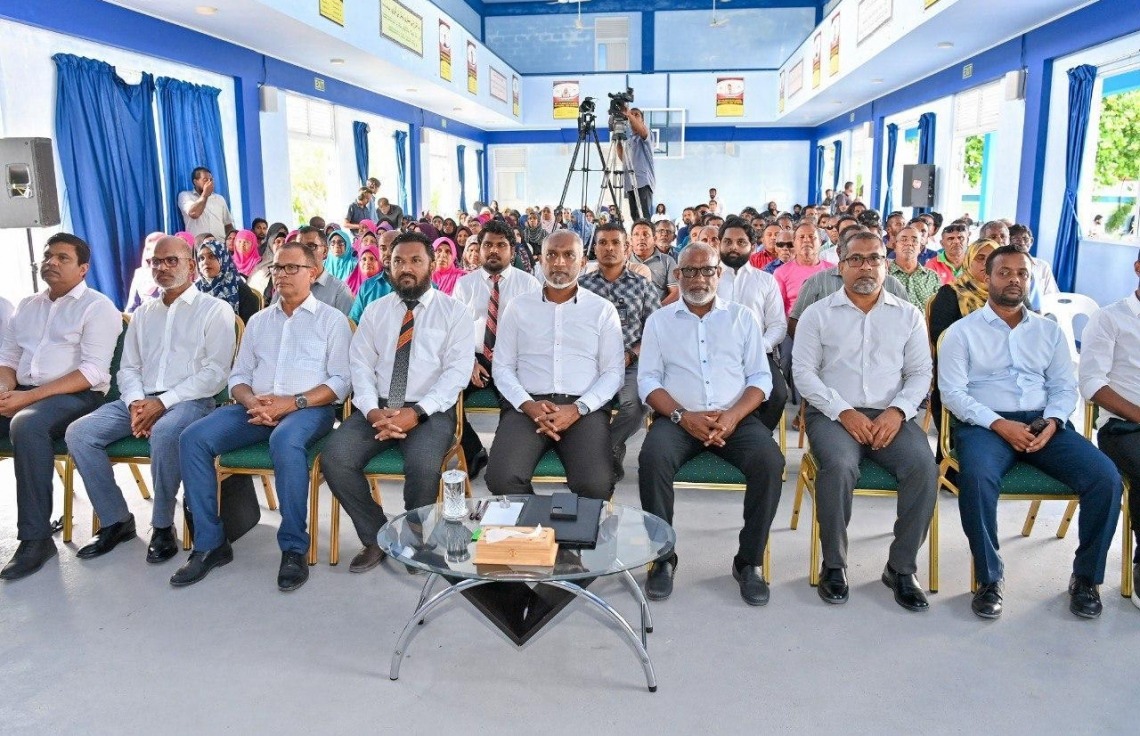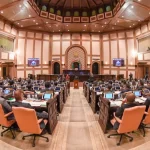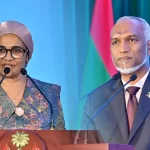A cabinet minister’s combative remarks about metaphorically aiming punches at opposition lawmakers’ jaws have ignited a furious controversy in the country over the boundaries of political speech and civility in discourse.
At a campaign-style rally on the island of Dhihgaru in Meemu Atoll, Local Government Minister Adam Shareef lashed out at opposition figures he accused of obstructing President Dr. Mohammed Muizzu’s agenda, suggesting he would hit them “square on their jaw” if given a chance.
“If I were there today, would I be able to not aim square at the jaw of one of them?” Mr. Shareef said of opposition members of Parliament, according to local media reports, in a rhetorical flourish drawing parallels to a boxing match.
The political event was attended by the ruling party’s candidate for next month’s parliamentary election, Ahmed Nazim, as well as senior members of Dr. Muizzu’s cabinet, all clad in white shirts.
https://etruth.mv/1364/
The pugnacious comments struck a nerve in the country. The speaker of Parliament, Mohammed Aslam, raised concerns that such language from a senior official could promote injustice and sow discord. Human rights advocates condemned the remarks as unacceptable.
Mr. Shareef, a novice politician known for an outspoken style, soon walked back the remarks somewhat, offering an apology on social media. He said he did not intend to incite unrest and that the “aiming at MPs’ jaws” phrasing was meant humorously, an expression associated with him.
But it was not the first time Mr. Shareef’s words had landed him in hot water. As defense minister under the previous administration of President Abdulla Yameen, he sparked an uproar in 2018 by suggesting he would literally punch opposition lawmakers, further inflaming political tensions at the time.
In the days since the latest incident, the contretemps has touched off a furious debate in the Maldives over what constitutes acceptable political speech and whether enough is being done to uphold democratic values and norms of civility.
For the opposition Maldivian Democratic Party, which was the target of Mr. Shareef’s vitriol in Dhihgaru, the fiery language amounted to an unacceptable breach. The party accused the minister of promoting a culture of violence.
Mr. Shareef’s defenders, including within the ruling Progressive Party of Maldives, have pushed back against what they see as an overreaction, with some arguing that the remarks were clearly not meant literally.
The raging disagreement speaks to the charged political atmosphere in the country, a young democracy that has continued grappling with vestiges of authoritarianism and the impacts of a recent hard-line administration under Mr. Yameen. With a pivotal parliamentary election scheduled for April 21st, debates over the appropriate bounds of political speech show no signs of abating.
“This kind of violent rhetoric has become normalized, but it should not be,” said Abdulla Naseer, a prominent lawyer campaigning for the Kaashidhoo parliamentary seat, condemning Mr. Shareef’s comments. “It reflects a broken political culture that leaders need to address through meaningful reforms and a return to democratic ideals.”












